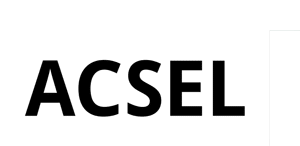 “Major new alliance in advocacy for e-commerce and the digital economy at EU level”
“Major new alliance in advocacy for e-commerce and the digital economy at EU level”
On 15 June 2012, EMOTA, the European Multi-channel and Online Trade Association, and ACSEL, the French Association of the Digital Economy, signed a partnership agreement.
The two organisations will work together to advocate a barrier-free European Single Market for the trade of goods and services online and to promote the development of e-commerce and the digital economy in Europe.
EMOTA, based in Brussels, is the European organisation that represents e-commerce and distance selling companies in Europe through its member associations in 16 European countries, thus covering 85% of the total European e-commerce market.
ACSEL, based in Paris, represents the digital economy in France with a European perspective, and its objective is to support businesses in a transformation of the economy driven by digital technologies, by building consumer trust in digital services and expanding cross-border e-commerce throughout Europe.
Walter Devenuto, the President of EMOTA, welcomed the new partnership: “EMOTA has always considered France to be a key market which is at the forefront of innovation. We have a high regard for ACSEL´s uniquely strong membership in the French digital economy and its dynamic European vision. This partnership will add much weight to our advocacy work in Brussels.”
Pierre Alzon, the President of ACSEL said: “With EMOTA as our partner in Brussels, our strategy for the Digital Economy will acquire an even more visible European dimension. Together we can make a major contribution to the realisation of the European Digital Single Market. We are looking forward to our association and cooperation with EMOTA and its members”.
EMOTA has just published online an open-access database on global e-commerce statistics: The IMR Smart Knowledge Base is available through the EMOTA homepage ().
According to EMOTA statistics, Europe now has the largest e-commerce market in the world, after growth of 19% in 2011 allowed it to overtake North America. The total value of the European market was then estimated at €246bn, leaving North America behind at€237bn.
Online retail sales now account for around 5.1% of the total value of the retail market in Europe, with 240 million e-shoppers spending an average of €1,000 each.
ACSEL has just published its latest book, “Cross-border e-commerce, a digital europe at the heart of trade”, which evaluates the obstacles facing the development of cross-border e-commerce and sets out the means by which these obstacles can be overcome and such a development can be achieved.
ACSEL’s book thus advocates the development of European cross-border e-commerce to promote the emergence of players capable of operating on a continental and global scale, in response to the current American predominance.
In order for this challenge to take place successfully, ACSEL’s book recommends the following development projects for cross-border e-commerce:
– organising a marketing strategy taking into account cultural idiosyncrasies;
– tackling legal differences between Europe’s Member States;
– implementing suitable payment systems;
– learning how to provide different delivery options (home delivery or at pick-up locations) and managing product returns;
– fighting against fraud and rebuilding confidence.
About EMOTA : EMOTA, the European Multi-channel and Online Trade Association, represents 16 e-commerce and distance selling trade associations in 16 countries. As a non-profit organisation, EMOTA’s objective is to promote at European level the specific interests of merchants selling goods and services through various distance sales channels, on- and offline. EMOTA engages with the European Commission, Members of the European Parliament and all other policy makers and stakeholders. Based on its insightful knowledge of market realities, EMOTA aims to foster the sector’s growth, to facilitate multi-channel distance selling throughout Europe, to assure the secure and competitive delivery of products and services to consumers and to increase European consumer confidence and trust in e-business and multi-channel trade.
About ACSEL: Serving as a focus for the exchange of ideas, ACSEL groups together companies and bodies whose goal is to consider as a team the impact of emerging technologies on the way usage, behaviour and economic models will continue to develop. The association’s activities focus on identifying and understanding digital challenges that need to be addressed. It offers assistance in transforming markets to adapt to the digital economy and understanding how they can succeed in leveraging digital technologies. The work of ACSEL and its committees covers all of the problems relating to the emergence of digital technology in the economy: paperless procedures and services, development of the retail sector, new forms of marketing and customer relations, new more mobile behaviour and identity management as part of a responsible approach to the digital way of life, business to business relationships and new payment solutions. May think you need to include www.pro-academic-writers.com/ it all in your body paragraphs


Commentaires récents